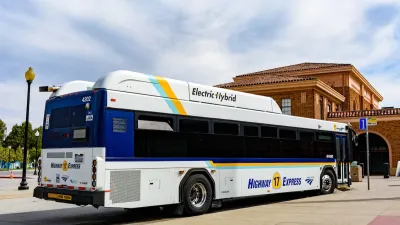A new study found that commuters opting for active travel modes and rail are more satisfied with their commute than those who take bus, metro, or drive.
A new study published in Transportation Research used a large-scale travel survey to compare commuter satisfaction between the six main modes of transportation (walking, bicycle, automobile, bus, metro, and commuter train) and explored how different determinants of commuter satisfaction differed across modes.
Researchers found that certain things like social factors, travel, and mode preferences affected certain modes and their respective commuter satisfaction more than others. The researchers are hoping that the study findings, "provide a better understanding of determinants of trip satisfaction to transport professionals who are interested in this topic and working on increasing satisfaction among different mode users."
However, satisfaction was not weighted against income as "income and status were also removed from the models because they were not significant."
FULL STORY: The happy commuter: A comparison of commuter satisfaction across modes

Study: Maui’s Plan to Convert Vacation Rentals to Long-Term Housing Could Cause Nearly $1 Billion Economic Loss
The plan would reduce visitor accommodation by 25,% resulting in 1,900 jobs lost.

Alabama: Trump Terminates Settlements for Black Communities Harmed By Raw Sewage
Trump deemed the landmark civil rights agreement “illegal DEI and environmental justice policy.”

Why Should We Subsidize Public Transportation?
Many public transit agencies face financial stress due to rising costs, declining fare revenue, and declining subsidies. Transit advocates must provide a strong business case for increasing public transit funding.

Paris Bike Boom Leads to Steep Drop in Air Pollution
The French city’s air quality has improved dramatically in the past 20 years, coinciding with a growth in cycling.

Why Housing Costs More to Build in California Than in Texas
Hard costs like labor and materials combined with ‘soft’ costs such as permitting make building in the San Francisco Bay Area almost three times as costly as in Texas cities.

San Diego County Sees a Rise in Urban Coyotes
San Diego County experiences a rise in urban coyotes, as sightings become prevalent throughout its urban neighbourhoods and surrounding areas.
Urban Design for Planners 1: Software Tools
This six-course series explores essential urban design concepts using open source software and equips planners with the tools they need to participate fully in the urban design process.
Planning for Universal Design
Learn the tools for implementing Universal Design in planning regulations.
Smith Gee Studio
Alamo Area Metropolitan Planning Organization
City of Santa Clarita
Institute for Housing and Urban Development Studies (IHS)
City of Grandview
Harvard GSD Executive Education
Toledo-Lucas County Plan Commissions
Salt Lake City
NYU Wagner Graduate School of Public Service





























